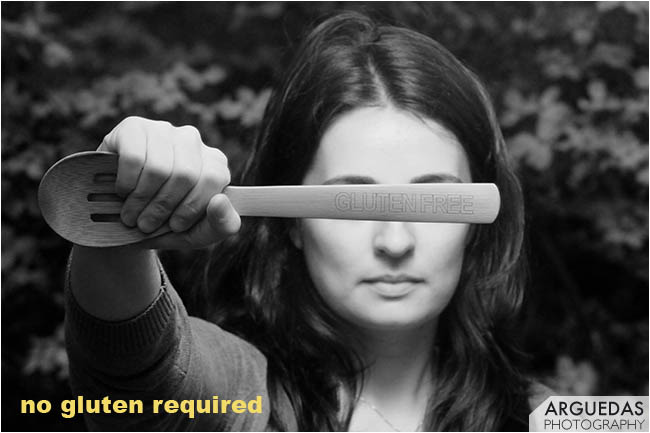Jennifer Esposito's recent interview got a few wheels turning. Is it actually harder now than it was 4 years ago to be gluten free? Are there really no resources "out there" for Jennifer (and the millions of other humans who need to live gluten free)?
When people are first diagnosed I cut them a lot of slack. I offer them advice. I tell others to be care, generous, and above all forgiving. When you are first figuring out the gluten-free landscape it can feel overwhelming and one can be prone to hyperbole. But after 4 years, perspective should have set in. There are now more gluten-free cookbooks, online resources, guides, friends, and medical professions who know what gluten is. It is far from perfect, but it is leaps and bounds better. It is also millions of times easier to find information than if you were diagnosed before the mid-90s... you know before the internet.
I think we need a time out to talk about privilege. Gluten-free privilege looks like this:
If you had the ability to google anything about celiac disease or gluten
If you have the free time do research about gluten
You have a computer
People listen to you when you say your are ill
You found a doctor who would work with you and doesn't say its all in your head
You have a doctor
You have health insurance
You have the time and money to go to multiple doctors visits
You have paid sick time to have medical tests done like an endoscopy and colonoscopy
If you made it this far down the list, there is a high probability that you are white and not suffering from other healthcare disparities
You have choices in what you get to eat and when
You have access to gluten free replacement foods (like gf bread)
You can afford gluten free replacement foods
You can afford the time and money to research gluten-free options
You have a platform where people listen to you (cough blogging cough)
You have access to gluten free recipes, cookbooks, guides
So why does this matter?
In the US, right now, 15% of people live at or below the poverty line ($23,050 or less a year for a family of four). That is over 45 million people. It is actually a lot more complicate. Let's put this in perspective. The average actual cost of living for a family of 5 in the US is $58,627 a year.
There are millions of Americans who don't have access to time, information, or money to buy gluten-free replacement foods. Millions of Americans don't have the privilege that Jennifer does, or that I do. There are people who won't get a chance this year to find out that by not eating gluten, she could feel a whole lot better.
The second big problem I have with Esposito's comment is the fact that it has the effect of erasing people. By saying that there aren't any resources out there, she is blanketing decades of research, books, advocacy, and lives of people who helped make it possible for her to be diagnosed as having celiac disease and have something to eat before she opened her bakery.
Jennifer, as does everyone, has the right to feel alone and frustrated with the current gluten-free marketplace in the US. It can be incredibly difficult to navigate through misinformation, cross-contamination, and feel like you are constantly having to educate others. It can be exhausting. But we need to acknowledge that we aren't the first human beings dealing with this and that things would be a lot more difficult with the incredible work of other people who shared recipes, engaged in scientific research without the funding of drug companies, provided support networks in-person and online, and made safe gf food options available before yesterday. Ignoring those people, erasing them from history, that doesn't help us at all. It hurts us.

PREACH. This is such an excellent post! I think it's okay to whine a little for personal stress relief (and I do enough of it myself on my own...cough, blog, cough...) but that it's so important to keep it in perspective. If I hadn't been able to take time off from work I'd never have gotten diagnosed. And, hey, if I'd lived in the 1700s without the Internet to help me figure out coping strategies for the early symptoms, I'd probably have just become an "invalid," as they said. In all kinds of times (including our own) and places (including our own country), people have and have had it much, much worse. Yes, it's a bummer that the disease isn't taken super seriously by some, but there are far worse situations to be in. And we've come a long way.
ReplyDeleteHere is a great way to talk about privilege in general: http://thefeministbreeder.com/explaining-white-privilege-broke-white-person/
ReplyDelete